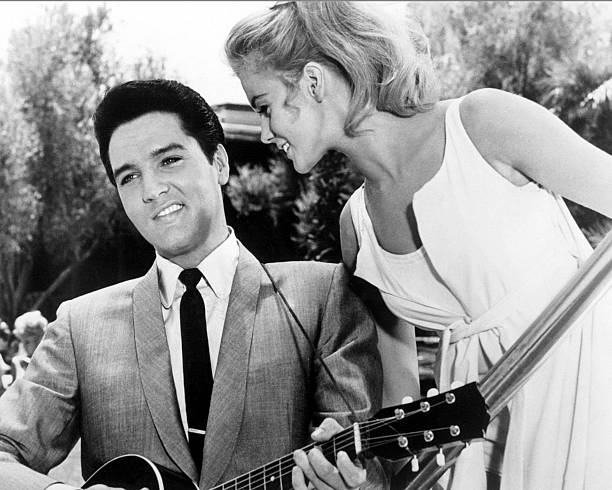 Introduction and Short Summary of the Song
Introduction and Short Summary of the Song
Released in 1968 as part of the soundtrack for the film Stay Away, Joe, the song of the same name is one of Elvis Presley’s lesser-known recordings from his Hollywood years. Written by Ben Weisman and Sid Wayne, two of the most prolific contributors to Presley’s movie catalog, “Stay Away, Joe” was crafted to serve the film’s Western-comedy setting. With its country flavor, folk-inspired rhythm, and humorous lyrics, the track fit the movie’s lighthearted tone rather than aiming for commercial chart success. While it was never promoted as a major single, the song remains a curiosity in Presley’s catalog, illustrating both the limitations and charm of his late 1960s soundtrack work.
Origins of the Song
The film Stay Away, Joe, released in March 1968, was a Western comedy in which Presley played Joe Lightcloud, a Native American rodeo rider caught up in a series of comic misadventures. Like many of Presley’s movies from the era, it combined slapstick humor with romantic subplots and musical numbers designed to highlight his charisma.
---> Scroll down for the VIDEO
Songwriters Ben Weisman and Sid Wayne were veterans of Presley’s film projects, having supplied dozens of songs that fit specific cinematic scenarios. For Stay Away, Joe, they penned the title track to provide a lively, folksy number that reflected both the character’s mischievous personality and the rustic setting of the film. Presley recorded the track on October 1, 1967, at RCA Studio B in Nashville during sessions dedicated to the soundtrack.
Why Elvis Released “Stay Away, Joe”
The song was not released as a single but appeared as part of promotional material tied to the movie. RCA issued it on the soundtrack EP in 1968, though like many of Presley’s late 1960s soundtracks, it was not heavily promoted. By this time, the focus of Presley’s career was shifting: his movie projects were losing steam, while his musical comeback was just around the corner, culminating in the famous ’68 Comeback Special.
---> Scroll down for the VIDEO
“Stay Away, Joe” thus served more as a film-specific novelty number than a commercial centerpiece. Its release reflected the ongoing contractual obligations Presley had with Hollywood studios and RCA, rather than an effort to generate chart-topping material.
The Message Conveyed in the Song
The lyrics of “Stay Away, Joe” are playful, humorous, and rooted in folk tradition. They describe the exploits of the character Joe, whose carefree, troublemaking ways bring both charm and chaos to those around him:
“Stay away, Joe,
They say your kisses are sweet.”
The message is less about romance or heartbreak—staples of Presley’s catalog—and more about mischief and personality. It serves as a theme song for the film’s protagonist, encapsulating his restless spirit and roguish charm.
Presley’s delivery balances humor with energy. He sings with a wink in his voice, fully embracing the lightheartedness of the material. While not vocally demanding, the song benefits from his charisma and playful interpretation.
The Recording and Musical Characteristics
Musically, “Stay Away, Joe” leans on folk and country stylings, appropriate for the Western setting of the film.
-
Vocals: Presley’s performance is relaxed, playful, and infused with charm, matching the comedic tone of the movie.
-
Instrumentation: The arrangement includes acoustic guitar, upright bass, light percussion, harmonica, and fiddle, creating a rustic, down-home feel.
-
Backing vocals: Minimal backing harmonies give the track a communal, folk-song quality.
-
Mood: Upbeat, humorous, and folksy, the song feels like a campfire number rather than a polished pop hit.
-
Style: Rooted in folk and country traditions, the track highlights Presley’s versatility, though it is clearly designed for cinematic context rather than radio play.
The production emphasizes simplicity, keeping the track light and breezy to fit the film’s comedic atmosphere.
Cultural and Commercial Impact
Commercially, “Stay Away, Joe” had little impact, as it was never marketed as a mainstream single. The film itself received mixed reviews, with critics noting its formulaic plot and Presley’s increasingly typecast roles. Consequently, the soundtrack—and its title track—did not generate significant cultural buzz.
However, the song is culturally significant as part of Presley’s final stretch of Hollywood films. By 1968, his movie career was nearing its end, and songs like “Stay Away, Joe” illustrate the lighter, less ambitious material he was often asked to perform. Yet even in this context, Presley’s vocal charm prevented the track from fading into complete obscurity.
Legacy of “Stay Away, Joe”
Today, “Stay Away, Joe” is remembered primarily by dedicated Presley fans as a quirky piece of his film-era output. It is not considered essential Presley, nor does it rank among his best ballads or rockers, but it holds nostalgic value as a snapshot of his Hollywood years.
For enthusiasts of his soundtrack material, the song provides insight into the types of assignments Presley regularly faced—songs written to serve a movie’s theme rather than to showcase his artistry. Still, Presley’s ability to bring warmth and personality to even modest songs ensures its place in his discography.
More broadly, the track represents the end of an era. Within the same year, Presley would redefine his career with the ’68 Comeback Special, returning to the raw power and emotional depth that had made him a legend. In contrast, “Stay Away, Joe” serves as a reminder of the lighter, less ambitious period that preceded that artistic resurgence.
More than fifty years later, “Stay Away, Joe” remains a curious footnote in Presley’s career—playful, humorous, and tied closely to its cinematic context. While not a highlight of his musical output, it reflects the King’s ability to bring charm and energy to even the most whimsical of songs.